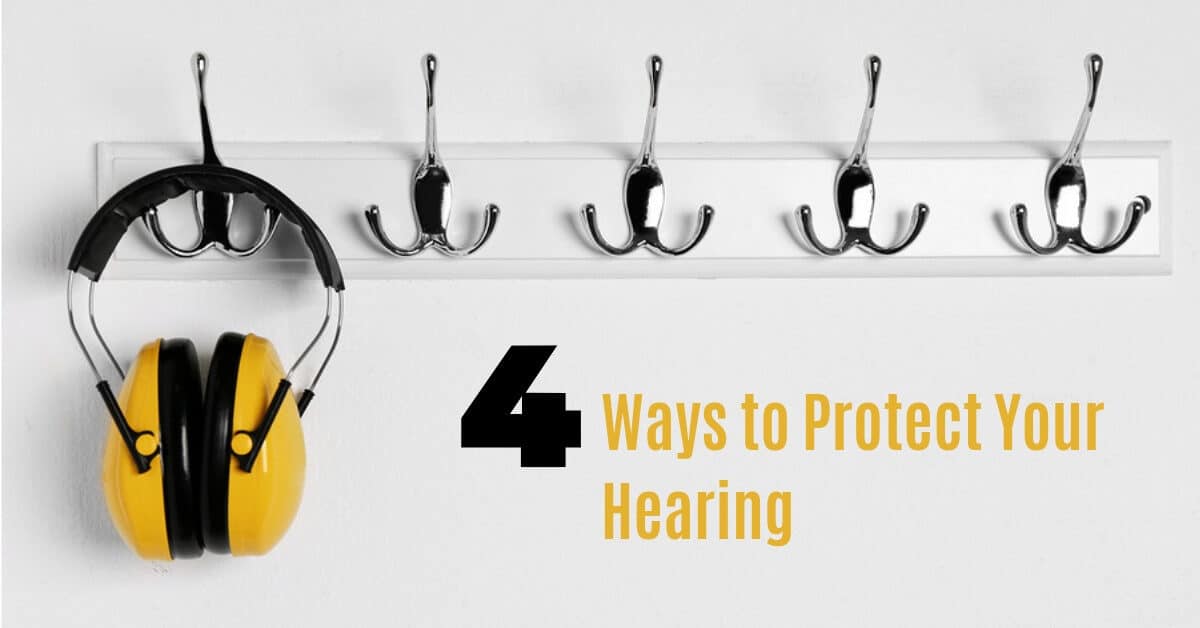- How to Recognize the First Signs of Hearing Loss - June 5, 2025
- Understanding the Connection Between Tinnitus and Weather - May 17, 2025
- The Most Unexpected Reasons Hearing Aids Can Malfunction - May 9, 2025
Do you protect your hearing? Are you doing enough to safeguard your hearing health, and make sure that you’re not missing any of the important sounds around you? Around 40 million Americans are struggling to hear, and many experience the negative effects of hearing loss including reduced quality of life, relationship stress, social isolation, trouble focusing and completing tasks, and even an increased risk of depression and dementia. If you’ve been ignoring your ears, it’s time to start prioritizing your hearing, and follow these 4 ways to protect your hearing.
What Sounds Cause Hearing Loss?
When you think about hearing loss, you might think about your grandparents, or older relatives, and many people assume that hearing loss only affects seniors. However, noise induced hearing loss accounts for millions of cases of hearing loss, and children, teens, and adults all risk hearing loss do to exposure to extremely loud noises during work and leisure activities.
Sounds over 85 decibels (dB) are the culprits when it comes to hearing loss. Whether you’ve been exposed to one extremely loud noise that caused sudden hearing loss, or are exposed to loud noises day in and day out that chip away at your hearing, it’s important to realize what sounds could cause hearing loss.
Any time you have to shout to be heard by the person standing next to you, you’re exposing your ears to very loud sounds. Common household items like a food processor or vacuum cleaner are louder than 85 dB, as are things like leaf blowers, or the power sander you used on your deck last summer. Rock concerts, bars and sports events can also cause hearing loss. Noisy jobsites are a common culprit, and even the commute to work in heavy traffic can be far louder than 85 dB.
1. Wear Hearing Projection
The most obvious way to protect your hearing is to wear hearing protection. It’s a good idea to have a few foam earplugs in your bag, and you can pop them in any time you’re in a loud place. You can even give a pair to a friend, and encourage everyone to look after their hearing health. If you work on a noisy jobsite, consider investing in quality hearing protection, and make sure you’re protecting your hearing at all times.
2. Monitor Your Listening Habits
Who doesn’t love listening to music? Many of us have our earbuds in for many hours of the day, whether we’re sitting at our desk focusing on work, driving across town, or at the gym doing cardio, many of us rely on music to get us through the day. It’s important to monitor your listening habits, and make sure that you’re not damaging your hearing when getting your groove on. Our personal listening devices can far exceed 85 dB, and do real damage to our hearing, blasting music into our ears for hours at a time.
Protect your hearing by turning down the volume. Never exceed 60% of the volume, don’t turn it up to drown out background noise, and take frequent breaks to give your ears a rest. Teach your children about safe listening practices as well, and make sure your teens aren’t damaging their hearing.
3. Get Custom Fit Ear Molds
If you’re wearing earplugs or earbuds in your ears for many hours every day, you can get custom fit ear molds to provide a comfortable fit that gives you a good seal. It will protect your ears, and prevent uncomfortable feedback or wind interference.
4. Schedule a Hearing Test
Have you tested your hearing in the last 5 years? Many Americans haven’t had a hearing test since school, and you might be living with hearing loss without even knowing it. To protect your hearing, call us today at Roseville Diagnostic Hearing Center and find out more about your unique hearing profile. Learn about your hearing health and hearing loss, and be ready to treat any hearing loss you might be experiencing.
We work with the world’s top hearing aid manufacturers, and will work with you to find the hearing aids that best fit your lifestyle and hearing needs, providing you with clear hearing, and protecting your hearing for years to come.

